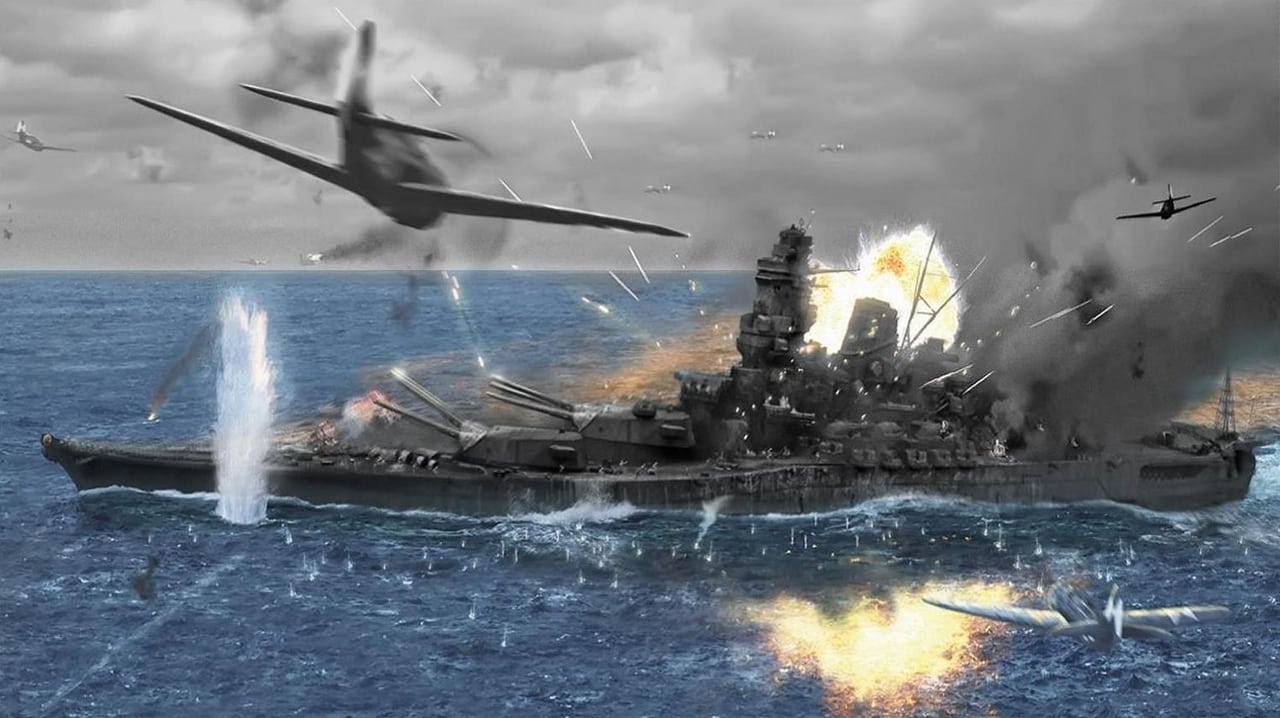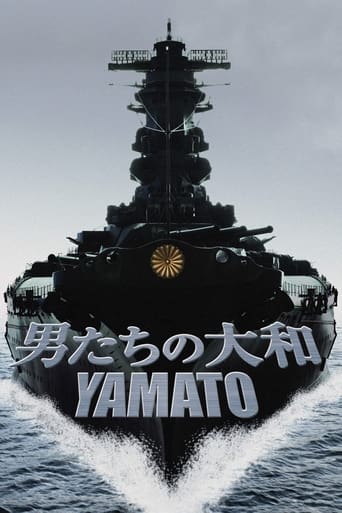

I saw this English subtitles on youtube. I have read the commentating about the non propogandic value. My own family history Latvian side has some of most brutal irony a nephew served in the uniform of the nation that had his own uncle as an inmate. That young man was old and his youngest brother yet to be born in WWII competed the last USA V USSR before the wall fell in flying competition. There were some elements the need to honor the dead. My grandmothers ashes were spread at Visby.I do have the following beefs nothing about what Japan did in China explained its all glossed over. The irony that even the Battlefield documentary series pointed out the surrendering wounded Japanese pulling the pin on hand gernades at Gaudacanal. Is not mentioned. The actions of Japan forced the bombing they scared the (exp deleted) out of.Hard to do real action full size without plans. It did also omit the fact the crew heard radio transmissions of kamikazes making final dives.Interesting piece on the Japanese mindset about WWII kind of schizophrenic about what it did. As Tejano I have com to terms with the darker sides of my Latino heritage as well. Latvian/Latino (I am a product of the US Army)
... View MoreGiven their desire to put the humiliation of the Showa period behind them and their understandable anti-militarism, I am glad to see the Japanese put out a realistic war movie that gets away from stereotypes. The story could be about the young men of any country in any war. Although the tag lines often read that it is about the Yamato on her last mission, this is really a backdrop for the portrayal of her crew as what they were, people. Multi dimensional, brave, flawed and dedicated. It also shows that the Americans were committed to press the attack until the job was done.Although there were (and always are in war movies) technical errors, the act of strafing gun crews is an admitted tactic of US Naval fighter pilots of the era. This made it safer for the torpedo and dive bombers. I was glad to see that they showed blood in the battle scenes (often not shown in naval battles), not because I like gore, but it helped bring to life the horror of battle.
... View MoreHere we have the epic tale of the battleship Yamamoto. This ship was eventually destroyed by a U.S. air strike off the coast of Okinawa; well over 2,000 crewmen went down with the ship, and most where new conscripts who were merely teenagers. While adhering to most factual details, the movie embellishes with dramatic tales of family and friends, lovers and mothers, the effect of which is intended to heighten the sense of tragedy over the loss of youthful lives. The viewer also witnesses the brutal discipline of the Japanese military of that era, replete with punishment and beatings for those who fail to meet the exacting service standards demanded by superior officers.The young sailors are depicted as striving with gusto to serve in the capacity expected of them. The fact that all are deluded into thinking they are serving to protect Japan is left to modern historic sensibilities to recognize. No mention is made of the abhorrent brutality of the Japanese military in Asia. On the other hand, American airplanes attacking the ship are merely an impersonal airborne antagonist; the planes appear as nothing more than menacing vehicles streaming down from the sky in much the same manner as the Japanese aircraft in the American movie Pearl Harbor.While one might argue the exaggerated masculinity that the Japanese military exhorted its members to assimilate led to the ruin of the young men, and this may be a central tragedy the movie sought to explore, the relish which most sailors seem to take in the fight does little to promote sympathy from the viewer. In cinematic terms, one strong point of the film is the Yamamoto's final battle where a grim and bloody onslaught, reminiscent of Saving Private Ryan, depicts the Yamamoto's denouement. Another feature of the film: it is told in a limited "flash back" style. It begins with a young woman seeking to find the Yamamoto's grave on the anniversary of its sinking, (There is more than one debt the movie owes to Saving Private Ryan). The movie ends with the young woman and friends in a small boat saluting the dead at sea. While this scene, too, is calculated to yield a strong sentimental response from the audience, its most useful purpose is to show that the issues of World War II remain difficult for contemporary Japanese to accept and resolve. But surely the difficulty is much more than grappling with the results of a failed military adventure.One very weak point of the movie is the fact that most of it was shot in a studio, something easily discernible. There is no out-at-sea feeling to the movie; scenes are shot too tightly to give the impression of being out in the open on a large vessel. The CGI effects are very poor, with the Yamamoto looking like a battleship on a video game display.In spite of strong performances by a number of the actors here, the movie cannot escape its own limited scope--it will not attract viewers outside of Japan. It is a movie designed for Japanese, and one that asks a limited number of questions about that nation's tragic march to disaster.
... View MoreI was prepared to watch, and be annoyed at, a typical sentimentally self-justifying movie about the brave and suffering Japanese, unfortunate victims in a war foisted upon them, ala nearly every TV drama I have ever seen touching on the war here in Japan. And, to some degree, this is such a movie.That criticism noted, the film does not shirk much, certainly no more than some Hollywood Spielberg vehicle, from touching on some of the realities of the Yamato's story: the brutality of the discipline, the bitterness of the divide between the men who justifiably resented being sent on a useless suicide mission and those willing to fight to maintain the pretense it was anything else, and the unpleasant horror of the battle itself, which moved me deeply in that, whatever bravery was being shown, it had no even symbolic value.The acting is good, the special effects passable (yet strangely effective because they were clearly effects), and the direction decent. In its way I found it far, far moving effective in portraying war than the "we can be heroes" efforts of better Hollywood. No one would willingly support a war such as this.Off topic? To speak up in this, hopefully very atypical, case, the voting on this movie, at this point, is a disgrace, with nearly all 1s and 10s. Why bother to grind the stupid Yamatodashii!/anti-Japan axes in such a pointless, if revealing fashion. 90% of the "reviewers" outta be ashamed of themselves.
... View More